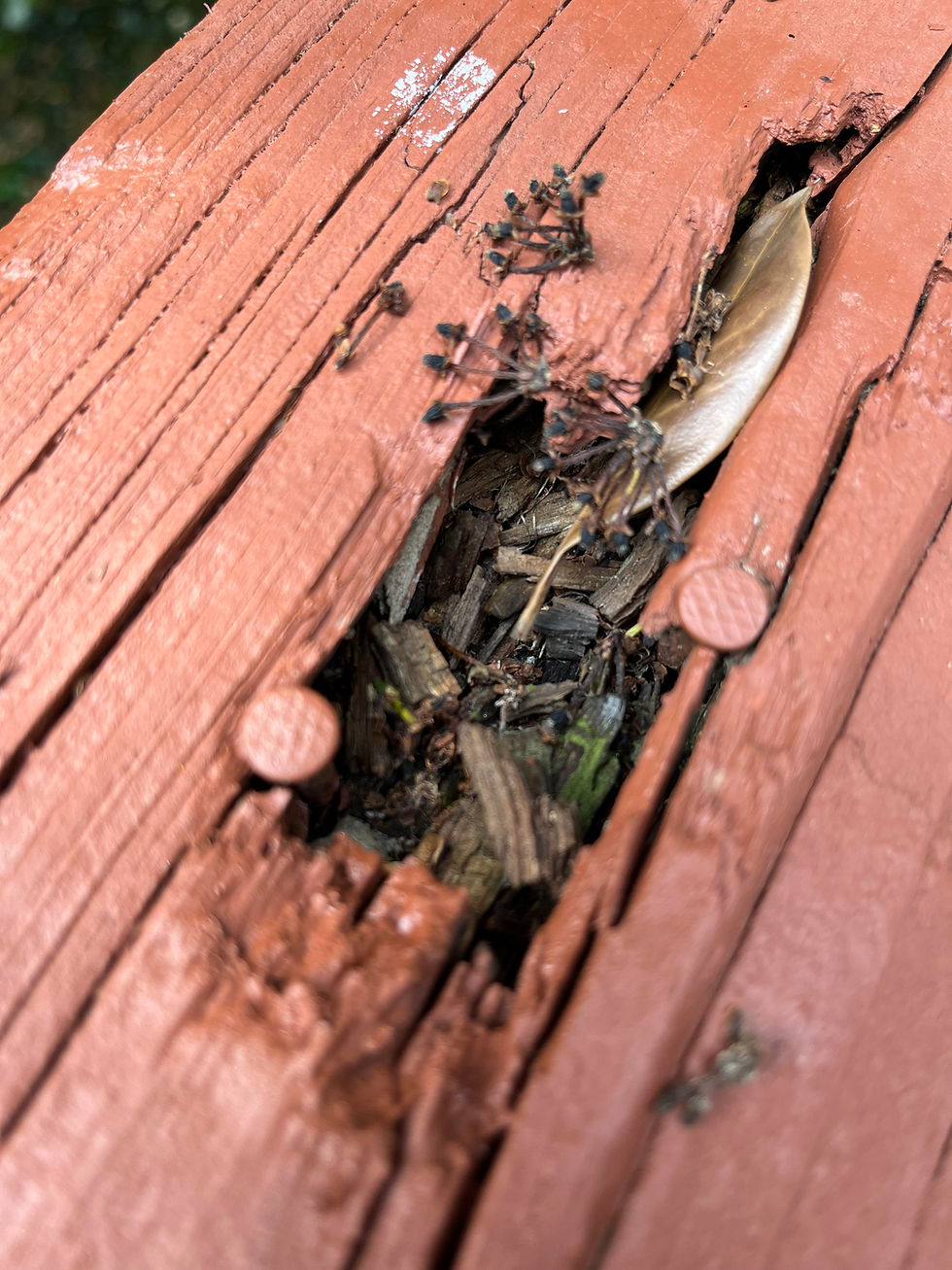Beyond Boundaries: The Timeless Allure of Vinyl Fences
- Haley Reyes

- Mar 24, 2024
- 3 min read
A vinyl fence is a type of fencing material made primarily from polyvinyl chloride (PVC). It is used for both residential and commercial purposes to provide security, privacy, and aesthetic appeal to properties. Vinyl fencing has gained popularity in recent decades due to its durability, low maintenance requirements, and versatility in terms of design.
Advantages of Vinyl Fence
One of the primary advantages of vinyl fencing is its durability. Vinyl fences are five times stronger and four times more flexible than comparable wooden fences, making them highly resistant to impacts and harsh weather conditions. This durability results in a longer lifespan for vinyl fences compared to other fencing materials. Another significant advantage of vinyl fencing is its low maintenance requirements. Unlike wood fences that need to be stained, painted, or treated regularly to prevent rotting and insect infestation, vinyl fences only require occasional cleaning with soap and water to maintain their appearance. This low maintenance feature makes vinyl fencing a cost-effective option in the long run.Vinyl fences are available in a wide range of styles and colors, allowing property owners to choose a design that complements their architectural style and personal preferences. Whether one prefers a traditional white picket fence or a modern privacy fence, there is a vinyl fencing option to suit every taste.Moreover, vinyl fences are resistant to elements such as moisture, sunlight, and insects, ensuring that they retain their appearance and structural integrity over time. This resistance makes vinyl fencing an ideal choice for regions with extreme weather conditions or high levels of humidity.
Installation and Cost of Vinyl Fence
The installation process for vinyl fencing involves setting the posts in concrete and then attaching the rails and panels to create the desired fence configuration. In terms of cost, vinyl fencing is generally more expensive upfront compared to materials like wood or chain-link. However, when considering the long-term maintenance costs and the durability of vinyl fences, they often prove to be a more cost-effective option over time. Additionally, the variety of styles and colors available in vinyl fencing can impact the overall cost, with more intricate designs typically costing more.
Environmental Impact of Vinyl Fence
The manufacturing process of vinyl fencing involves the production of PVC, which can have environmental implications due to the chemicals used and the energy required. However, advancements in manufacturing techniques have made the production of vinyl fences more energy-efficient and less harmful to the environment. One of the environmental benefits of vinyl fencing is its longevity. Since vinyl fences are resistant to rot, decay, and insect damage, they have a longer lifespan than many other fencing materials. This longevity reduces the frequency of fence replacements, thereby decreasing the amount of waste generated.Moreover, vinyl fences can be recycled at the end of their lifespan, contributing to the sustainability of the material. Recycled vinyl can be used in the production of new fencing materials or other PVC products, further reducing the environmental impact of vinyl fencing.
Maintenance of Vinyl Fence
To maintain the appearance and functionality of a vinyl fence, regular cleaning is recommended. Washing the fence with a mixture of mild soap and water to remove dirt, dust, and grime will help preserve its color and finish. Avoid using abrasive cleaners or tools that could scratch or damage the vinyl surface. In the event of damage to a vinyl fence, repairs are generally simple and can be done by replacing individual panels or components. Minor issues such as loose screws or fittings can be tightened or replaced easily to ensure the fence remains secure. If significant damage occurs, contacting a professional fence repair service may be necessary.
Conclusion
In conclusion, vinyl fencing offers numerous advantages that make it a popular choice for property owners seeking a durable, low-maintenance, and aesthetically pleasing fencing option. With its resistance to elements, variety of styles, and environmental benefits, vinyl fencing continues to be a reliable and sustainable choice for both residential and commercial applications.The future outlook for the vinyl fence industry is promising, with advancements in manufacturing technology and increased awareness of environmental concerns driving innovation in the production and recycling of vinyl materials. As the demand for durable and sustainable fencing solutions grows, vinyl fence manufacturers are likely to continue improving their products to meet the needs of a changing market.
Are you ready to learn about upgrading your fence?























Comments